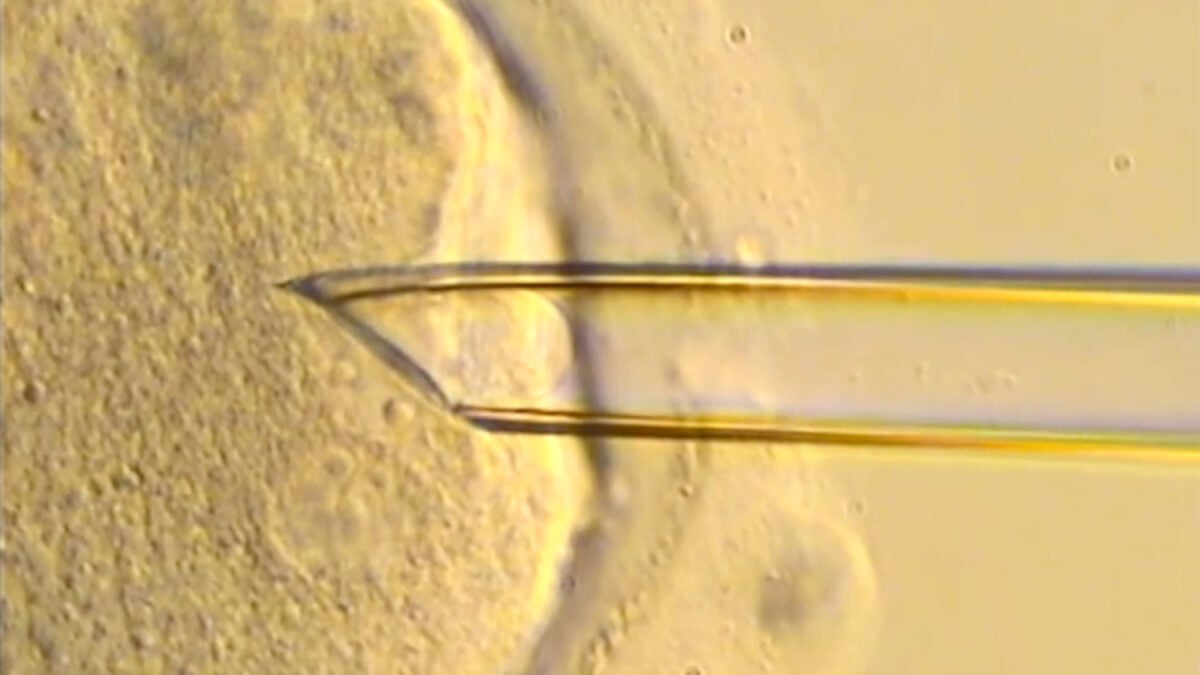8 Healthy 'Three-Parent' Babies Born in UK Using Pioneering IVF Technique

So-called “three-parent” babies are thriving in the U.K. New clinical trial research shows that several healthy children in the country have been born with the DNA of three people.
Doctors at Newcastle University led the study, which involved around two dozen women with a high risk of passing down harmful mutations of their mitochondria to their children. So far, eight kids have been born using an in vitro fertilization (IVF) technique that replaces a mother’s damaged mitochondrial DNA with that of a donor, all of whom appear to be disease-free. The findings seem to validate this new approach to preventing these genetic disorders.
“As parents, all we ever wanted was to give our child a healthy start in life. Mitochondrial donation IVF made that possible,” said the mother of a girl born with the method in a statement from the university. “After years of uncertainty, this treatment gave us hope—and then it gave us our baby. We look at them now, full of life and possibility, and we’re overwhelmed with gratitude. Science gave us a chance.”
Mitochondria are the cell’s primary source of energy, but only a tiny slice of our genetic material is responsible for creating them. This mitochondrial DNA (mtDNA) is found outside the nucleus, unlike the rest of our DNA, and the genes for making mitochondria are only inherited from our mothers. Certain mutations of mtDNA are known to cause serious diseases, and women whose eggs carry these variants can pass them down to their children.
The technique pioneered by Newcastle researchers sought to get around this risk in a relatively simple way. They use standard IVF to create a fertilized egg with the mother’s and father’s DNA, then remove the nucleus. This nucleus is inserted into a donor egg that had its nucleus removed, which is finally transplanted into the mother’s uterus for a hopefully successful pregnancy. If all goes well, the resulting child carries all the nuclear DNA of their parents and the healthy mtDNA of the donor.
The researchers enrolled 22 women carrying harmful mtDNA variants to undergo the IVF procedure. These women were compared to a group of women who instead received preimplantation genetic testing (PGT), a common screening technique that can select for healthy mitochondria prior to the transplant (for some women, a harmful mtDNA variant will only show up occasionally in their eggs). Eight women who underwent mitochondrial donation had live births, while another woman has an ongoing pregnancy. None of the children—four boys, four girls, and a set of identical twins—have shown signs of mitochondrial disease so far, and all are reaching their developmental goals on schedule. The success rate of the technique (36%) was also similar to PGT (41%). The results were published across two studies in the New England Journal of Medicine.
The findings do point to some current limitations of mitochondrial donation. Some of the children had mitochondria carrying harmful mutations, for instance. Even in these children, however, most of their cells still carried healthy mitochondria, and their levels of mutated mitochondria are likely low enough to prevent disease from emerging. But this result will merit further monitoring of the children, and it suggests the IVF method can be improved to lessen the chance of it happening.
Earlier versions of mitochondrial donation have been developed, though these were eventually banned in countries like the U.S. for being too dangerous. The UK has slowly but steadily been laying the groundwork for this newer and safer technique to be cleared for widespread use (the country officially allowed the first treatment in 2018, now seven years ago). So while there may be important questions left to answer, many women living with this genetic risk may soon have a new option available that will allow them to have children of their own.









